About us
Q&A
What is Amped’s overarching goal?
Amped aims to establish resilient regional food systems and realize the true economic, ecological, and societal value and impact of food through business ecosystem innovation, technology, transparency and collaboration.
How does Amped view collaboration and innovation?
Amped believes that by working together and looking at systems differently, models emerge that can solve many social, economic, and ecological challenges.
What services does Amped offer?
Amped initiates and develops business innovation ecosystems, partnerships, collaborations and projects aimed at rolling out or further develop robust, regional, and regenerative food systems.
What is Amped’s approach to activating stakeholders?
Amped values the abundance of farmer collectives and activities, along with their chains of trust, and seeks to activate and enable the next generation of change makers through strategic partnerships and programs with universities and student communities.
What role does digitization play in Amped’s strategy?
Amped utilises smartchain-platforms, web applications and blockchain-as-a-service to enhance transparency, compliance, and real valuation of the food chain, enabling total transparency from soil to customer.
What is the key to Amped’s rollout process?
The key to Amped’s rollout process is the GAIN Transition Model, a gamification model that enables and dynamizes collaboration, innovation, and governance.
How does Amped foster knowledge sharing and capacity building within the business communities it engages with?
Amped facilitates knowledge sharing and capacity building through various channels, including training programs, workshops, and digital platforms. By empowering individuals and organizations with relevant skills and information, Amped aims to catalyze sustainable practices and innovation within communities.
What measures does Amped take to ensure the ethical and responsible use of blockchain technology in its food supply chain applications?
Amped prioritises transparency, data privacy, and ethical considerations in the implementation of blockchain technology. Robust governance frameworks, data encryption protocols, and adherence to international standards are key components of Amped’s approach to ensuring the ethical use of blockchain technology.
How does Amped collaborate with policymakers and regulatory bodies to advocate for supportive policies and regulations conducive to sustainable food systems?
Amped engages with policymakers and regulatory bodies at local, national, and international levels to advocate for policies and regulations that promote sustainable food systems. This includes providing evidence-based recommendations, participating in policy dialogues, and supporting initiatives that align with Amped’s mission and values.
Can you elaborate on Amped’s approach to financial sustainability and revenue generation within its business ecosystem innovation initiatives?
Amped adopts a diversified revenue model, including revenue streams from consulting services, technology licensing, and project implementation. Additionally, strategic partnerships with investors, philanthropic organizations, and government agencies contribute to the financial sustainability of Amped’s initiatives.
How does Amped ensure the scalability and interoperability of its digital platforms and technologies across different regions and contexts?
Amped designs its digital platforms and technologies with scalability and interoperability in mind, leveraging open standards and modular architecture. This allows for seamless integration with existing systems and easy adaptation to diverse regional requirements and technological infrastructures.
Our mission
It is our mission to force a paradigm shift in the food system, based on 100% transparency, a shift from supply-side to demand-driven production and chains of trust among all stakeholders.

Mark Frederiks

Jan-Eric Kwak

Marc van Woudenberg

Maarten Klop

Maarten Klop

Matthijs van der Klip

Matthias Pronk

Sarah Nolan

Maria Fritz

Andrea Camargo
Rollout timeline
Largest farmers market / restaurant Food-y-Market (2013)
First farmer collective established (2014)
Pilot UMC restaurant Utrecht Science Park (2014)
Launch Haje Streektransferium Nieuwegein (2014)
Launch Local2Local e-commerce platform (2015)
Food-y-Fort festival (2015 & 2016)
GAIN Transition Model (2017)
Partnership with Flevofood (2018)
Initiator Operation Food Freedom (2018)
Start Smartchain H2020 (2018-2021)
Initiator of Task Force Short Chain (2018)

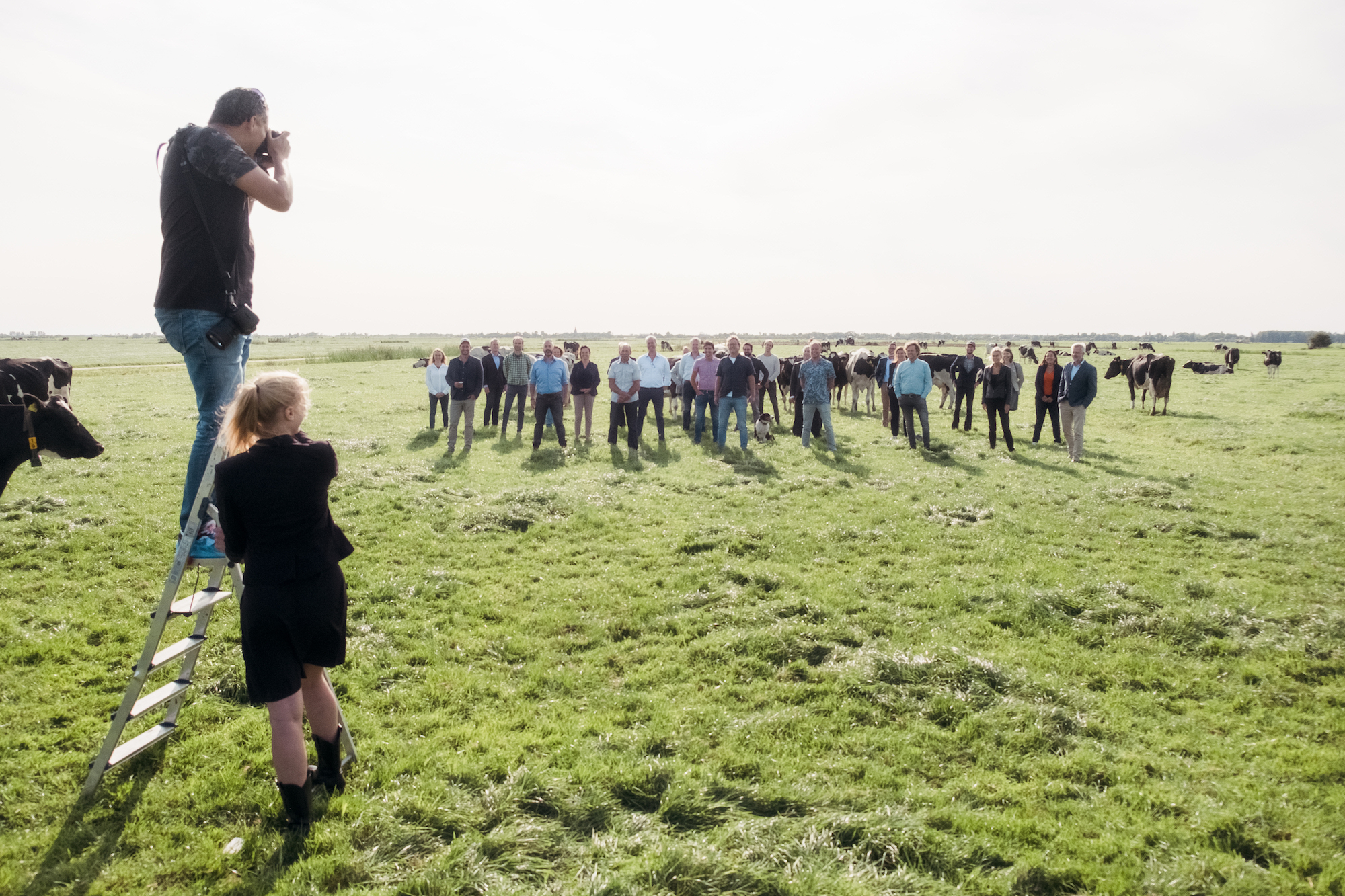
Initial AMA rollout plan; foundation (2019-2021)
Local2Local reaches 1 mio in revenue
Impact Hub Accelerator Program
Start AMA working group
Cross-KIC pilot project SFSC Amsterdam - Flevoland
Collaboration Zuidas network
Launch reversed market place
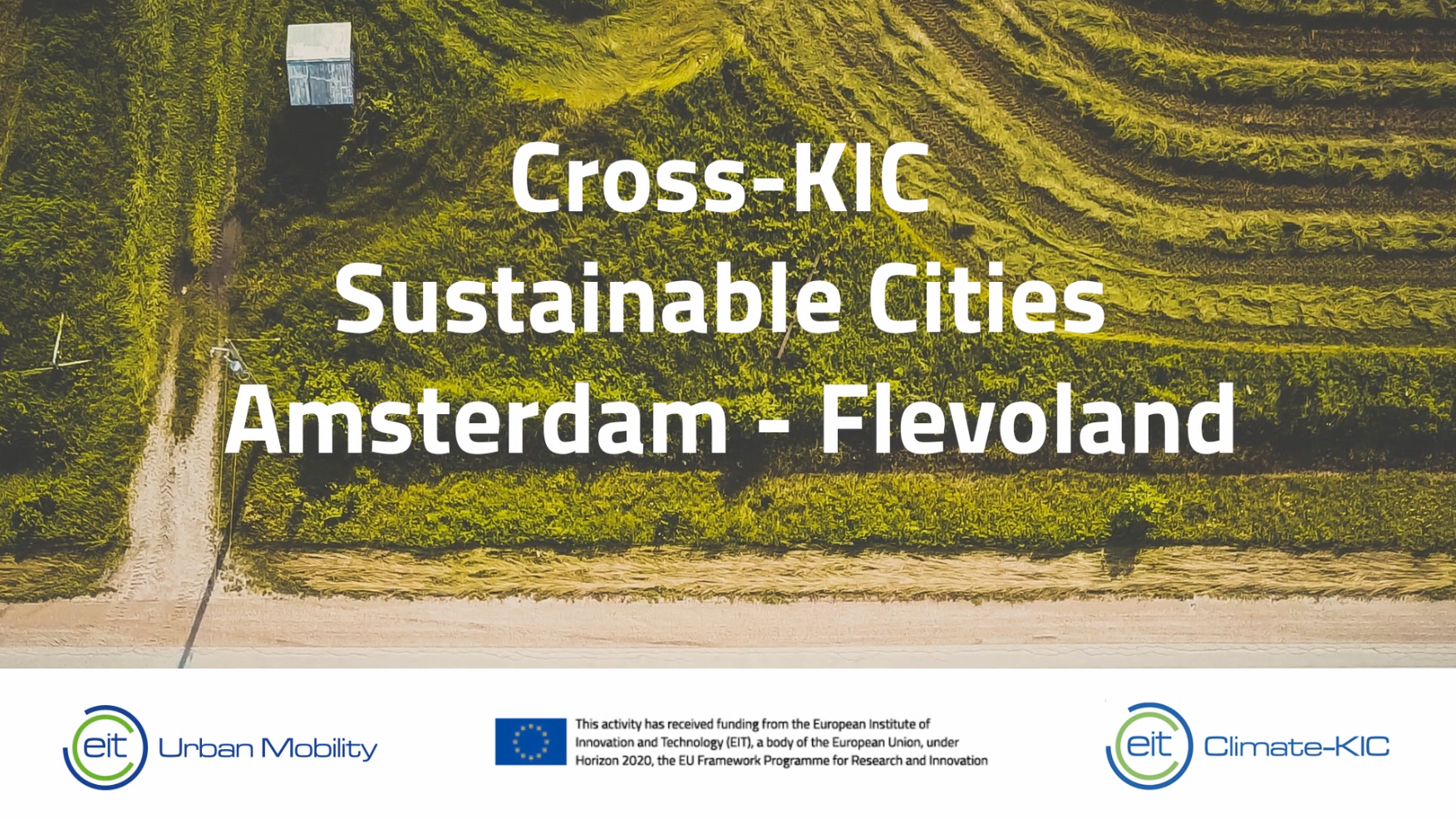
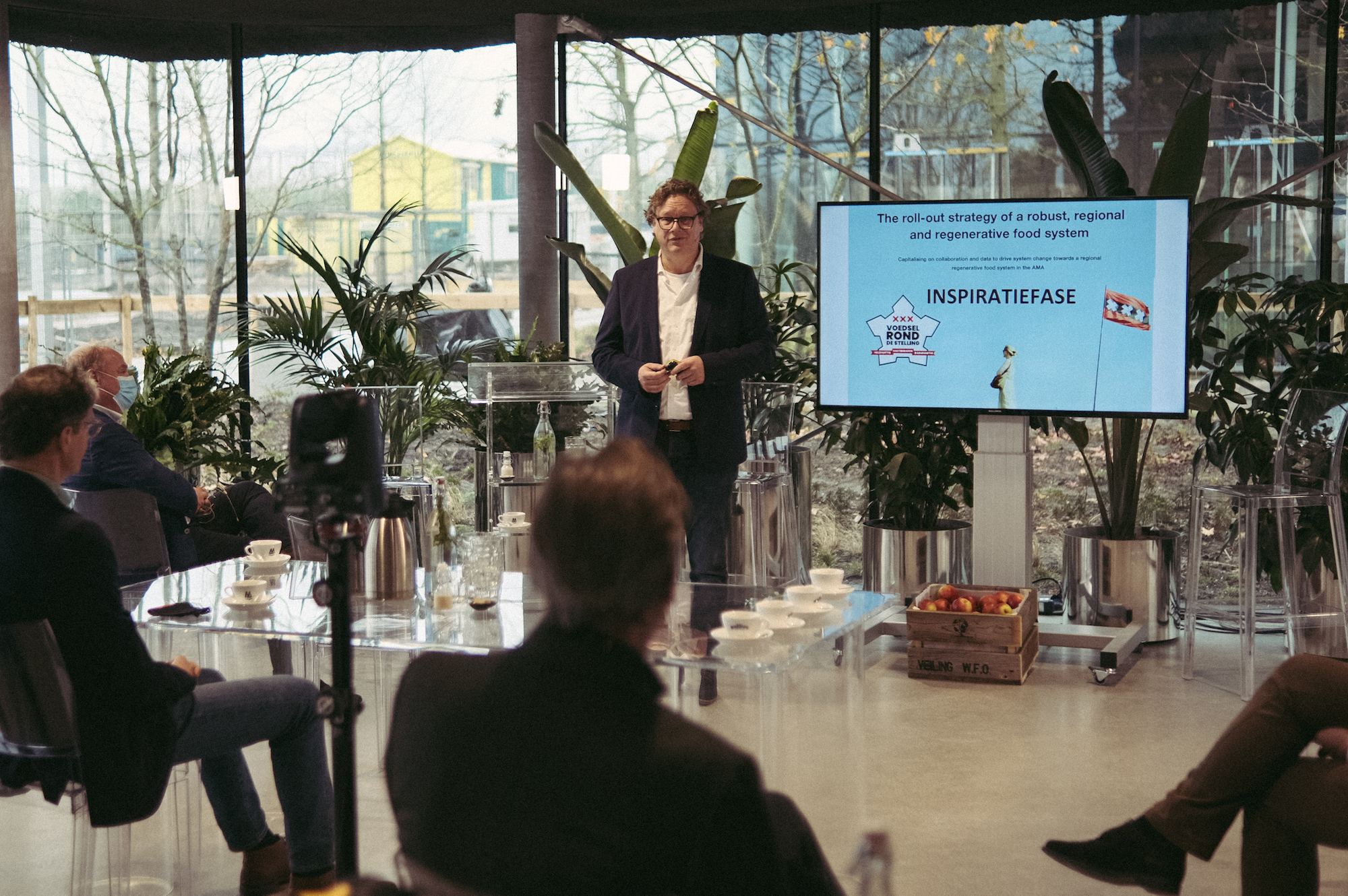
AMA rollout plan: end of inspiration phase, start of activation phase
Partnership Oregional SFSC, Boeren van Amstel, ProeVKantoor
Blockchain-integration L2L-platform
AMA rollout plan: end of activation phase, start of execution phase
Strategic partnership Unisot (BSV)
Inspiration phase Vital Food Community
Strategic partnership Bionutrient Association
REACT EU-project Data Value Center Agri & Food Short Chain
Start EU4Advice
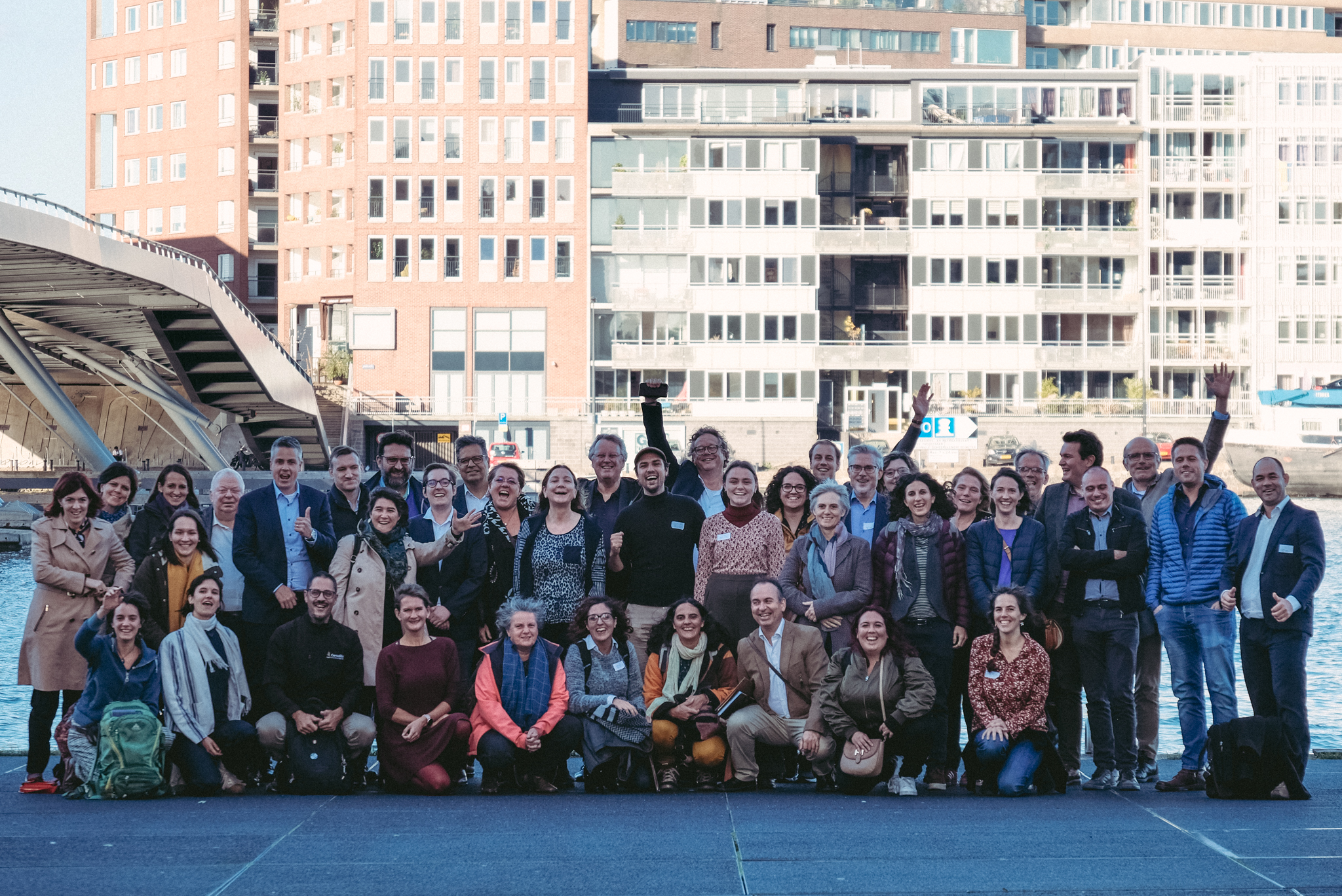
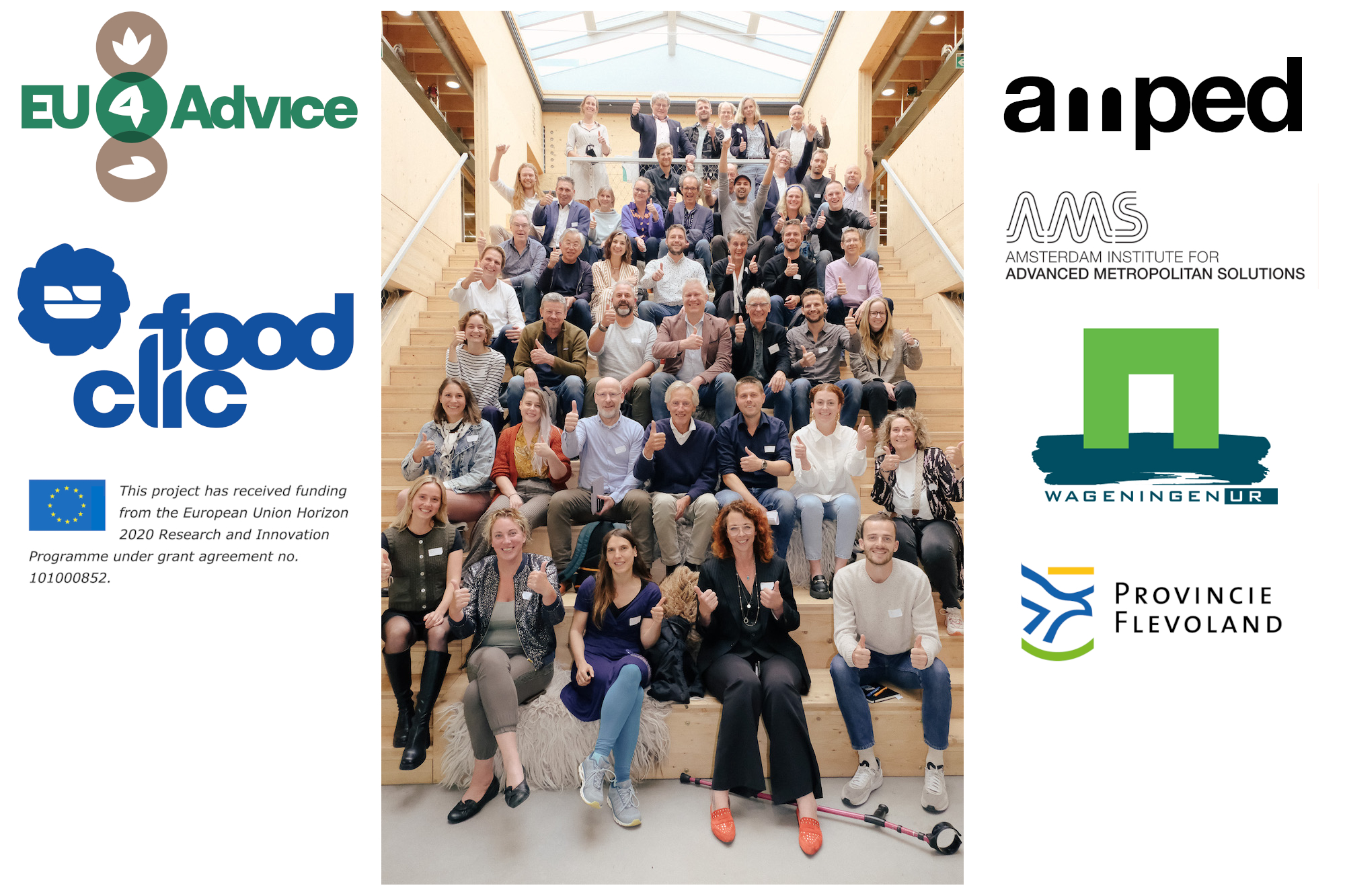
Founding of Short Chain Collective NL
Partnership with Land van Ons
Launch Operation Food Freedom hubs
AMA rollout plan: end of activation phase, start of conversion phase
Launch of EU4Advice / FoodCLIC Living Lab AMA